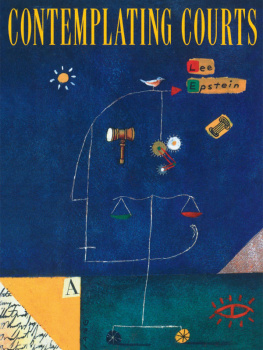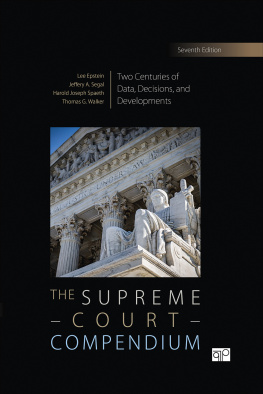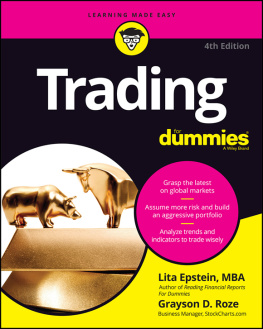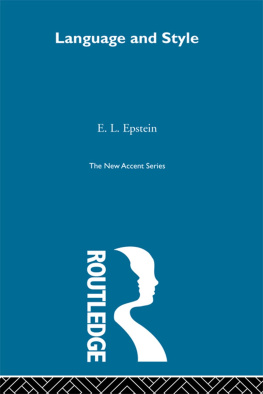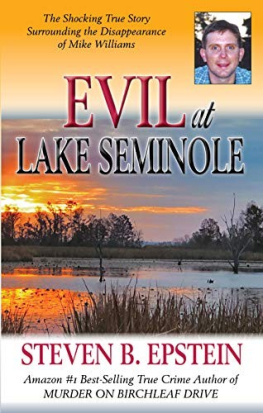Copyright 1995 Congressional Quarterly Inc.
1414 22nd Street, N.W., Washington, D.C. 20037
All rights reserved. No part of this publication may be reproduced or transmitted in any form or by any means, electronic or mechanical, including photocopy, recording, or any information storage and retrieval system, without permission in writing from the publisher.
Printed and bound in the United States of America.
Art director, cover: Anne Masters Design, Inc.
Original painting, cover: James Yang
Library of Congress Cataloging-in-Publication Data
Contemplating courts / Lee Epstein, editor.
p. cm.
Includes bibliographical references and index.
ISBN 0-87187-983-2 (cloth : alk. paper). ISBN 0-87187-982-4 (pbk. : alk. paper)
1. Judicial processUnited States. 2. Justice, Administration ofUnited States. 3. CourtsUnited States. I. Epstein, Lee, 1958-
KF8700.C66 1995
347.731dc20
For Harold
Preface
A few years ago, one of my former doctoral students asked me if I knew of any good readers for an undergraduate course on the judicial process. He was just getting settled in a new academic position and realized that he would need to order books for the coming semester. I responded with a few suggestions but, in the end, none of the current offerings satisfied either of us.
What we both wanted was something akin to Lawrence C. Dodd and Bruce I. Oppenheimers Congress Reconsidereda book of original, thought-provoking, and timely essays tailored to the needs of political science students; a book that would give students a compelling sample of our disciplines scholarship without the unnecessary jargon; a book whose contents could be appreciated by scholars and students alike. Unfortunately, nothing like that existed for the study of the judicial process; there was no Courts Reconsidered.
When conversations with others confirmed this void, I resolved to fill it by bringing the equivalent of Congress Reconsidered to law and courts-oriented classes. This meant, for one thing, aiming at something short of comprehensiveness. Just as Congress Reconsidered does not cover every aspect of legislative politics, Contemplating Courts does not provide an in-depth look at every dimension of judicial politics. That is because instructors typically use these kinds of books in conjunction with other texts or readings. By the same token, just as Congress Reconsidered presents many approaches to the study of legislative politics, I wanted the book to reflect the pluralism of the field of law and courts. Scholars of judicial politics are a varied lot, focusing on diverse substantive topics and invoking myriad research strategies. So I thought it especially important that the book convey to students the wide array of contemporary thinking on judicial processes.
With these goals in mind, Contemplating Courts was developed. The scope of the resulting book is revealed in its part titlesActors in the Legal System, Trial Courts, Lower Appellate Courts, The U.S. Supreme Court, and The Impact of Courts. These are subjects covered in virtually every judicial politics course, and instructors will be able to integrate the essays from each of the parts, in any order they choose, into their syllabi. One of the advantages of a book of readings, of course, is the flexibility it provides.
The choice of essayists also reflects my goals about the scope of the volume, for they are as varied as the field itself. Some of the contributors use numerical data to make their points; others take more contextual and historical routes. What is more, because the contributors range from Harold J. Spaetha founder of the modern-day study of judicial politicsto Lauren Bowena young but impressive Ph.D.the chapters reflect the thinking of more than just a generation of legal analysts. They encapsulate older perspectives that have withstood the test of time and newer ones that seem quite promising.
My suggestions to the essayists were simple. First, their chapters needed to be accessible to college students. Although graduate students will find the book useful, I did not want the contributors to lose sight of the fact that undergraduates were a primary audience. As they mapped out their chapters, then, I hoped that they would consider how upper-division students would react to their work. I also asked them to avoid long literature reviews or other information that textbooks often provide.
Second, I advised the authors to use statistics or mathematics if their work required them. After all, it is important to show students how political scientists go about answering interesting substantive questions; and many scholars use abstract formalizations to represent political processes mathematically, invoke statistical techniques to test their expectations against data, and so forth. I did, however, ask the authors who used statistics or mathematics in their chapters to take great care to explain their procedures clearly.
The chapters more than exceeded my expectations. The authors raise interesting research questions, use appropriate analytic strategies, and convey their messages in accessible prose without jargon. In the end, I had to make only two adjustments to the original plan. First, I supplemented the essays with a chapter on research design. Studying Law and Courts () provides students with an overview of the key elements contained in most sociolegal research and defines important terms used in other chapters, such as variables, statistical significance, and so forth. Second, I added methodological appendices that specifically address the logic of regression, probit, and logit models. Statistically speaking, these are the most sophisticated tools used in the book. And, while the essayists who rely on them provide excellent explanations, I thought it best to set them out clearly and uniformly in an appendix so that interested students could develop further intuitions about the way they worked.
In the end, my greatest hope is that Contemplating Courts has as long an academic life as Congress Reconsidered, now in its fifth edition. The contributors and I have tried to produce a book that will accomplish that end. Please let me know where we have succeeded and where we have not so that any necessary adjustments can be made in future editions.
In editing this volume, I have accrued many, many debts. Now is the time to pay off at least some of them. First and foremost, I thank the people at CQ Press. This is the fourth book I have published with them, and I will keep coming back as long as they will have me. As far as Im concerned, they run the most professional shop in the business, never sacrificing integrity for profit. Brenda Carter, CQ Press acquisitions editor, deserves special recognition. Despite her job title, Brenda did more than acquire this volume; she guided it through every stage of the process and offered many constructive suggestions. She was never shy about letting me know when and where I had gone astraythe most fundamentally important task an editor can perform. I am also grateful to Nancy Lammers, a director at Congressional Quarterly, who commissioned the wonderful cover art, among other things. Our copy editor, Joanne Ainsworth, too, deserves kudos. Joanne faced the daunting task of making sense out of seventeen chapters, written by scholars with significantly different theoretical, methodological, and substantive concerns. And she came through splendidly. I know I speak for all the contributors in acknowledging her efforts on our behalf. Finally, to Ann OMalley I offer my sincere thanks for considerably smoothing the production process.


